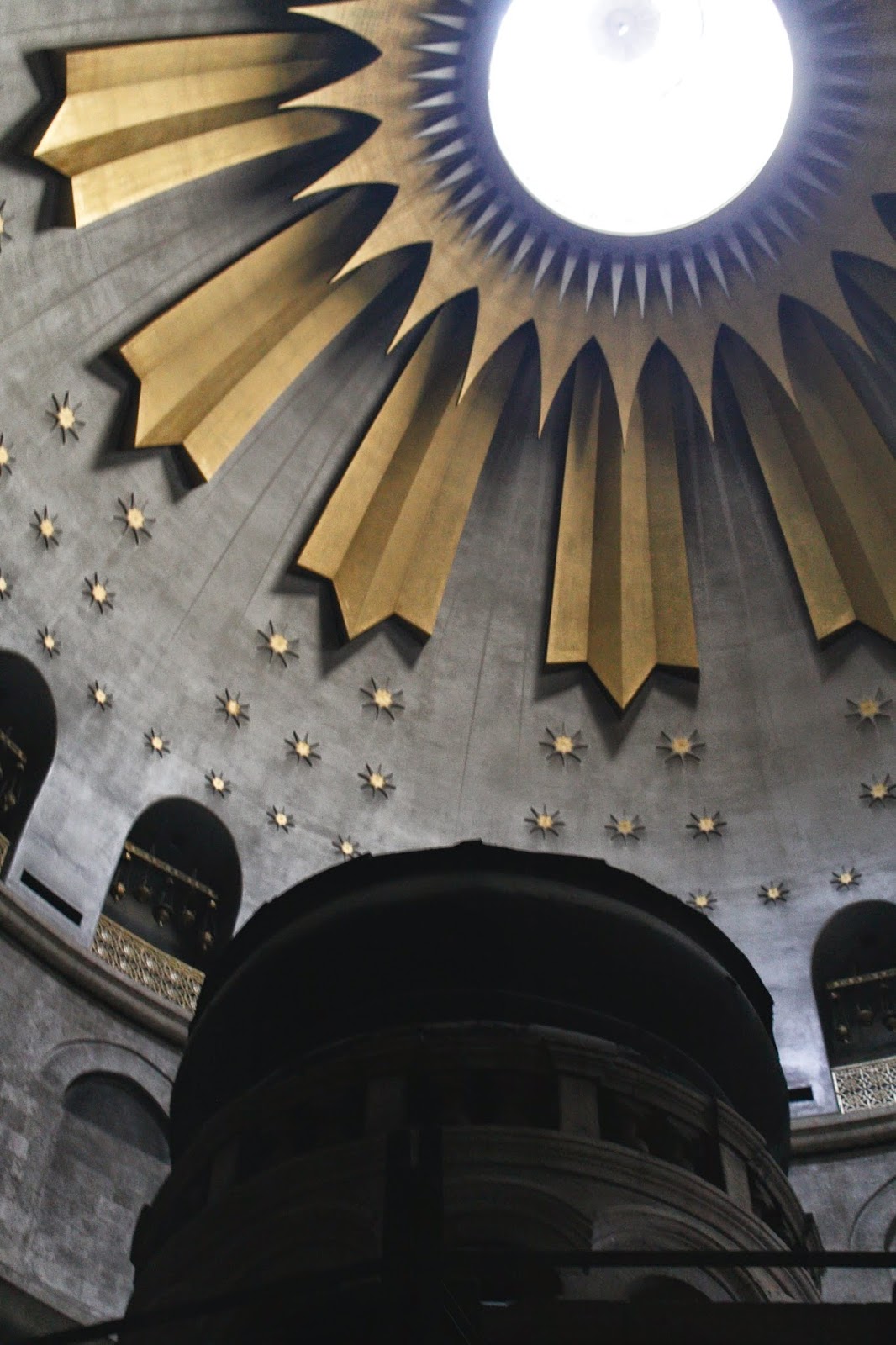“Jerusalem is built like a city
that is closely compacted together” Psalm 122:3. Today this verse became so
real to me. We started with a morning
filled with a lectures by Drs. Right, Cohick, and Kalantzis. We got the tor of
the JUC campus, and it was amazing to see how it was really built right into
the mountain, mount Zion. There is a
Presbyterian cemetery at one end of campus with a gate on it. The gate was open. When a few of us went
through we were rewarded with a beautiful cemetery and a breathtaking view of
the valley below. Starting after lunch we began our journey into the old city
of Jerusalem. We set out on foot from
JUC and began to walk up mount Zion. After maybe five minutes of walking,
probably less, we stopped under the shade of a large Jerusalem pine on the
property of the Greek Orthodox seminary just up the mountain from JUC. It was
here that Dr. Right stopped us and used the pines around us as an analogy of
the people living in this area. While the trees have grown up far apart from
each other, due to bending from the wind, the roots of the trees have to be so
large and expanding, to hold up such large trees in harsh conditions, that
there must be a deep connection between the roots of all these trees. He said
that this was similar to the Christians, Jews, and Muslims living in Jerusalem.
These peoples has grown up apart from one another, may even wish that another
was not there, but each group is deep connected to the city and to each other,
and the repercussions of removing one group may be more drastic than one would
think. It was with this idea of connectedness and deep roots that we left the
shade of the Jerusalem pines that we continued up to the top of Mount Zion.
We climbed
to the roof of a building, and stood at on the highest elevation of Mount Zion
and a clear view to the East. It was from here that I first saw the Dome of the
Rock, the Mount of Olives, and the Separation Barrier. It was unsettling to say
the least to see that warm, golden splendor of the dome and to turn your head
slightly and see the cold, grey of the wall piercing through the “wilderness.”
It was hard to process and see these Holy places from every diction on this
rooftop and then in the distance see this wall associated with so much pain,
suffering, and hatred. As I turned and walk down off of the roof, my back to
the Old City I face the wall, and was very sobered by the extent of the stories
of this land.
This roof
that we had been standing on, was none other than the roof of the building that
the supposedly held the Last Supper and also David’s tomb. When we first entered, Dr. Right asked us to
look around and just observe what was in this place. Looking around the room
you could see Christian, Jewish, and Muslim influence. Form Byzantine arches to
words from the Quran written in the stain glass windows. To determine the
location of these holy sites, one must turn to the biblical evidence, other
written sources, and archeology. This place may not have been the site of the
last supper and most likely was not the location of David’s tomb, but tradition
has claimed it to be so.
We walked
through the Zion gate of the old city, which is riddled with bullet holes from
the War of Independence, and entered into the Jewish Quarter of the old city.
It was here that I could feel the tightness of the city; people were
everywhere, buildings were packed as tightly as possible, streets were narrow,
and through it all the occasional vehicle would honk its way through. From this point on, there was a constant
barrage of sights and sounds all foreign to, all with its own story to
tell. We saw the excavated, ancient
Roman road that ran through the city and it was interesting to see that today’s
main road was on the same location, just about 15 feet higher.
The church of the Holy Sepulcher. I
was filled completely with conflicting emotions, reverence for the events that
are believed to taken pace there and shame at the way humans have handled it.
The place where Jesus was crucified and died in located across the building
from the tomb where Jesus was resurrected and conquered death. As I was walking through this place, I felt
so overwhelmed and overcome that I began to pray. I then proceed to learn that
six different churches have claims to parts of this church. The division of the
church and the arguments and difference between the different denominations are
so prevalent in Jerusalem and even in this holy place, the Church of the Hoy
Sepulcher. It is just so disheartening to see the extent of this division so
prominently, especially here. But, I guess that this imperfection and failure
is in our nature as humans, even in this holy city of Jerusalem. I suppose that
these imperfections, made the city more real to me, and made me realize that
these holy sites are in a human city, maintained by humans, by its nature there
will be imperfections. The Holy City is not.
The Church of the Holy Sepulcher

No comments:
Post a Comment